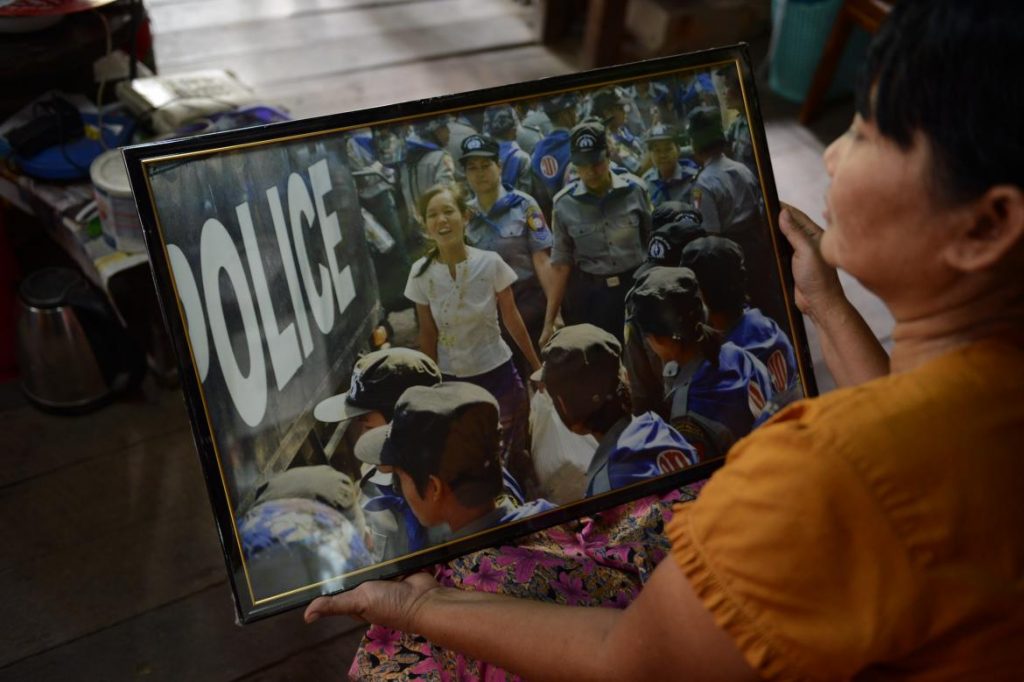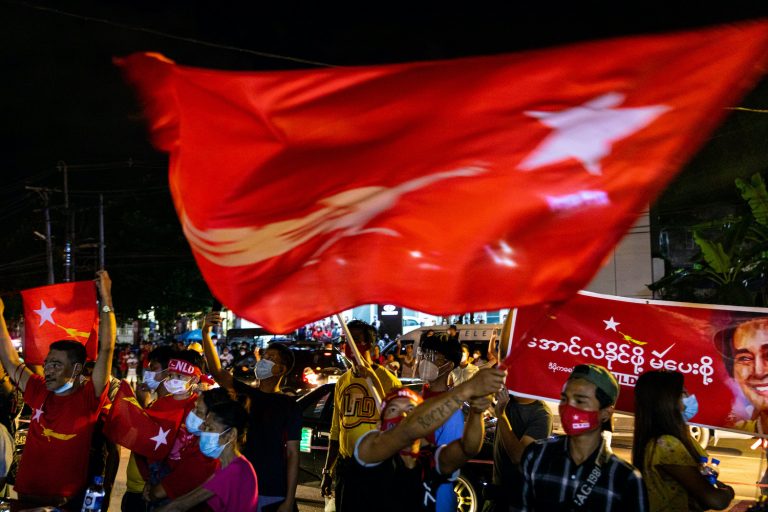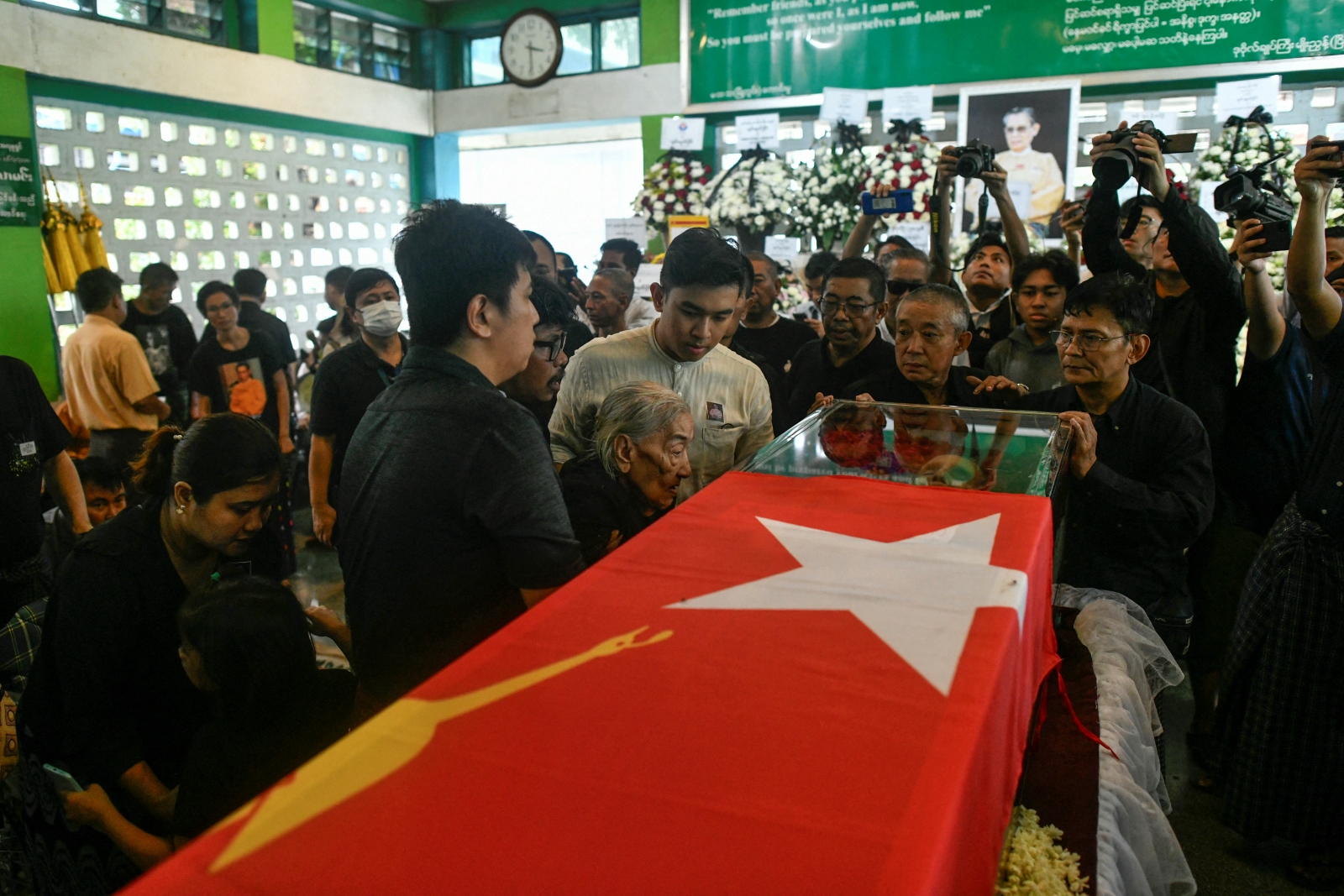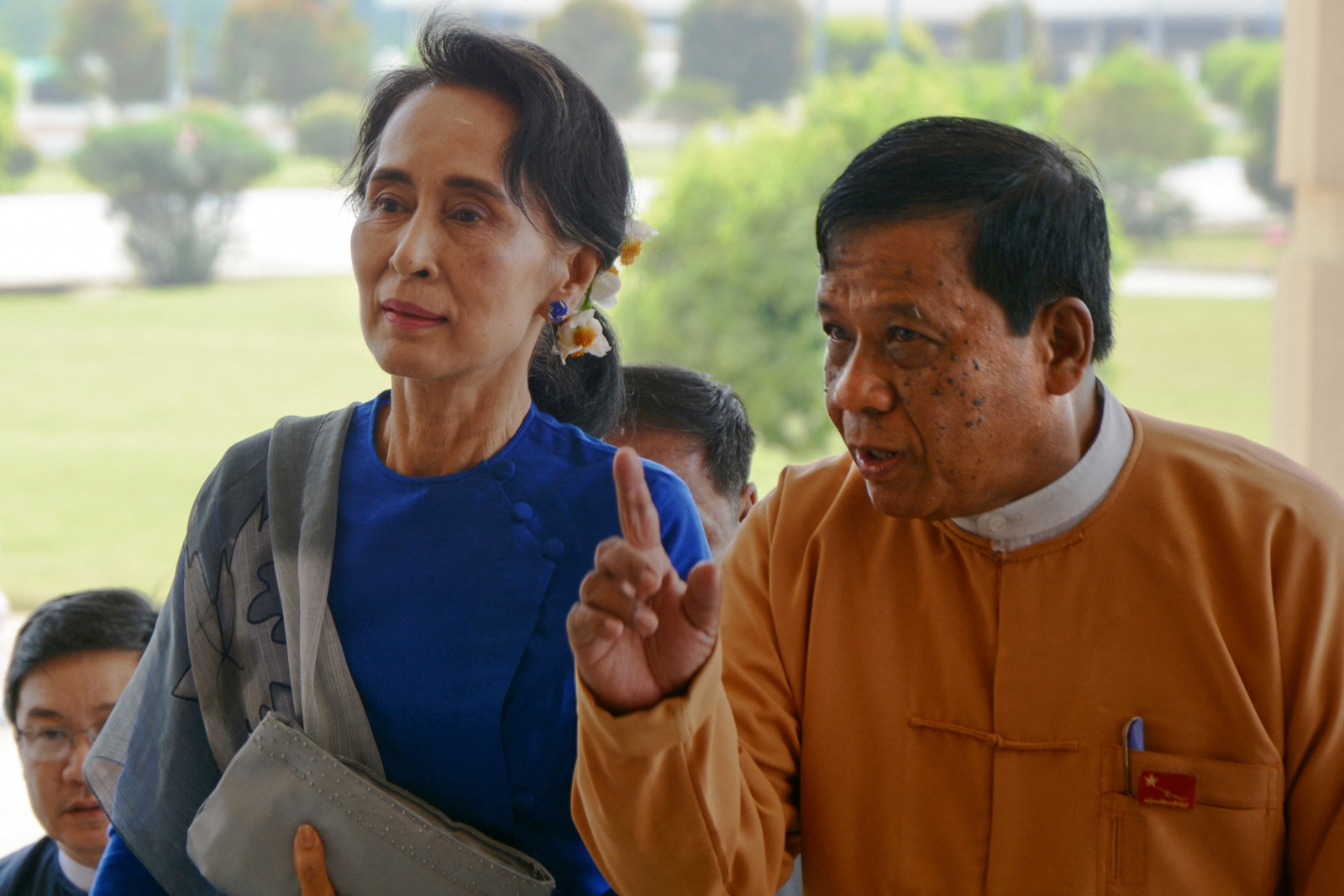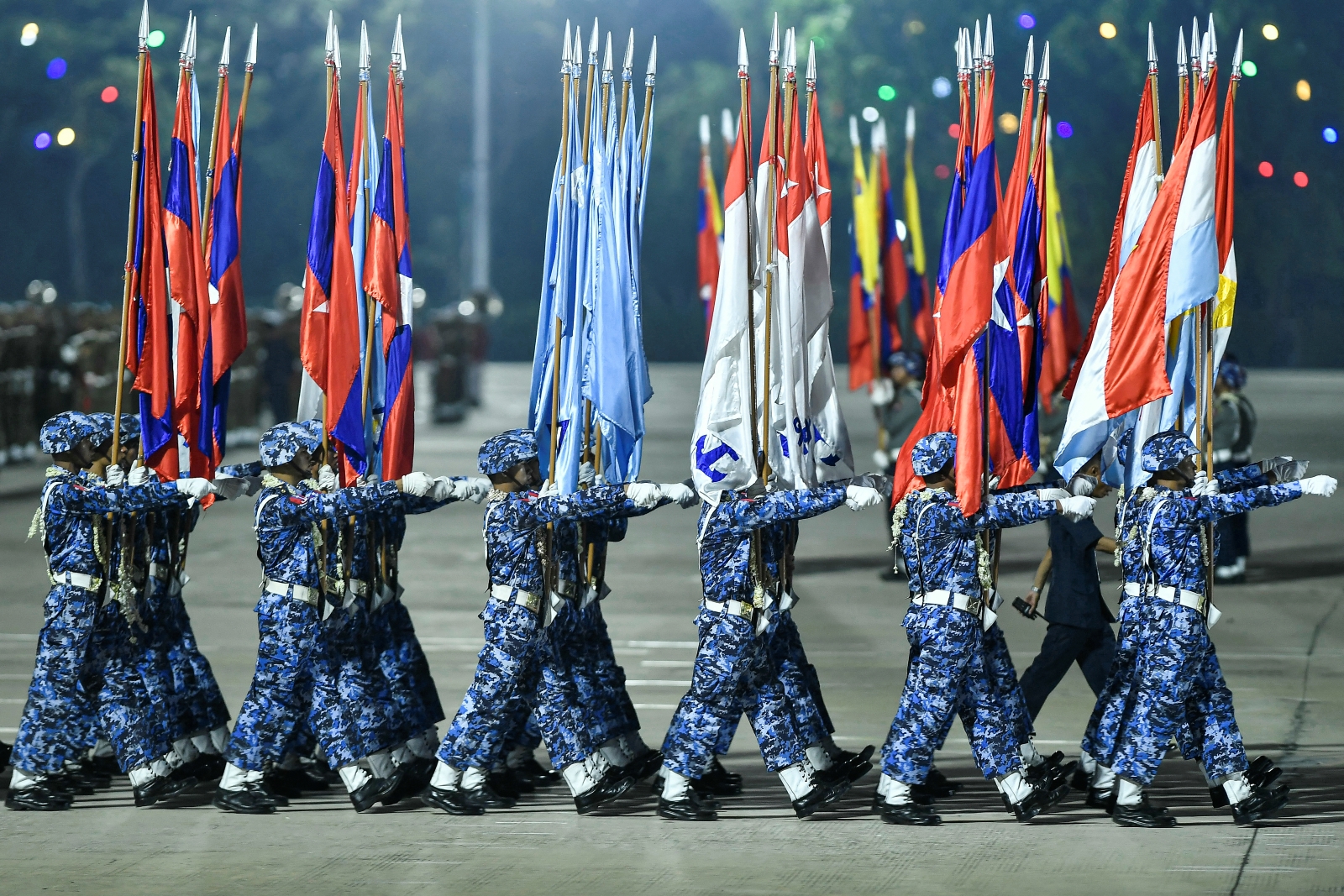Detained activists on hunger strike have spurned an NLD request to end their protest.
The staggering election victory of the National League for Democracy has raised hopes of freedom among some of the country’s political prisoners, but those who are fearful of the military’s continued influence remain cautious.
Although the families of jailed journalists expect an amnesty, detained student activists and their supporters have rejected a request from the NLD to call off a hunger strike that at its peak involved 15 people in several prisons.
As of November 16, six of the activists were refusing food and demanding the immediate, unconditional release of all Myanmar’s political prisoners as part of a protest that began in late October.
The six were among the dozens of protesters detained at Thayawaddy prison after being arrested at Letpadan in March when security forces brutally dispersed students and others involved in nationwide protests for education reform.
“They won’t stop until they get their demands,” said Ko Min Thu Kyaw, a student activist who took part in the education reform protests.
Support more independent journalism like this. Sign up to be a Frontier member.
The NLD, many of whose leaders were jailed by the junta, has promised to make the release of prisoners of conscience “one of the top priorities” when it takes power, spokesperson U Win Htein told Frontier.
NLD leader Daw Aung San Suu Kyi has urged the students to end the hunger strike “for the sake of a peaceful transition” of power, he added.
But the students, including three transferred from Tharrawaddy prison to Yangon General Hospital, have rejected the request.
“They said that while they acknowledge the request, the political prisoners aren’t free yet, so they have to keep going,” student activist Ma Po Po, who visited the hunger strikers in Yangon General Hospital on November 13, told Frontier.
“They think that if they stop they’ve lost their dignity,” said U Saw Thet Tun, a former political prisoner involved in the campaign for the release of jailed activists. “Our main concern is that this endangers their lives, we don’t want them to die.”
Of the three hunger strikers hospitalised last week, the families of two – Ko Aung Hmein San and Ma Myo Myat San – said they were transferred against their will from Tharrawaddy prison to Yangon General Hospital, The Irrawaddy reported.
President U Thein Sein earned international praise when he freed hundreds of political prisoners after coming to power in 2011, and their release contributed to decisions by foreign governments to lift sanctions. But in the last two years the number of protesters and others jailed for political activism has risen steadily.
There were 112 political prisoners in Myanmar to the end of October, said the Assistance Association of Political Prisoners, with another 486 detainees on or awaiting trial. They include the dozens of students and protesters detained during the crackdown at Letpadan.
The hunger strike highlights concerns among some activists that even though the NLD has won a huge majority in parliament it will face obstruction from the military when it forms a government late next March.
The constitution provides for the Tatmadaw commander-in-chief to appoint three key security ministers, including Home Affairs, which gives the military influence over the justice system.
Whoever becomes the next president will have the power to release prisoners under amnesty, as President U Thein Sein has done several times.
But that will not apply to those awaiting trial, says Burma Campaign UK, a rights group. The group last week raised concerns that activists’ trials may be extended to delay the possibility of an early release under amnesty if they are convicted.
Ko Min Thu Kyaw told Frontier he feared that the military would seek to keep activists in custody in an attempt to undermine the NLD’s popularity.
“It will be really hard to free political prisoners because authorities will play that game,” he said.
Others are more optimistic. They include lawyer U Wa Win Maung, who is representing some of the five Unity Journal reporters sentenced to seven years jail with hard labour last year over a report that the military was producing chemical weapons in Magwe Region, a claim denied by the government.
“I think they will be free before the water festival,” he told Frontier, referring to the traditional Thingyan New Year festival in mid-April.
Ma Thein Gyi Tun, the wife of Unity Journal reporter Ko Yar Zar Oo, is also hopeful that the five will be released, because of a comment by NLD leader Daw Aung San Suu Kyi last year when she visited the Magwe Region town where they were sentenced. “When the Lady came to Pakokku she said they were blameless,” Ma Thein Gyi Tun said.
U Bo Kyi, the joint secretary of AAPP, said he has asked the government to release all political prisoners before the NLD takes power to “honour the election and show its commitment to national reconciliation”.
The AAPP said two students held at Mingyin prison in Mandalay Region in March over protests against the Letpadan crackdown were tortured earlier this month after they went on a hunger strike.
It said in a statement that Ko Si Thu Myat and Ko Soe Hlaing were “covered in blankets and brutally beaten” on November 6 and then deprived of water, forcing them to give up their hunger strike a day after the election.
U Win Htein declined to comment on the military’s continuing influence over the justice system and said it was “premature” to discuss the issue.
“The army will continue to have significant influence over the police force even after a new government comes in to power,” said Laura Haigh, Amnesty International’s Myanmar researcher.
The NLD is also likely to face opposition from hardline Buddhist nationalists who have successfully pushed for convictions under a range of laws.
They include U Htin Lin Oo, a writer and former NLD spokesperson, who is serving a two-year sentence with hard labour for insulting religion over a speech in which he criticised the use of Buddhism as a tool for extreme nationalism.
It is unclear if the NLD, which has been accused of bowing to pressure from Buddhist extremists, will include U Htin Lin Oo in its pledge to release all political prisoners.
“A commitment to release prisoners of conscience must be a commitment to release all prisoners of conscience,” said Ms Haigh.
Additional reporting by Mratt Kyaw Thu


